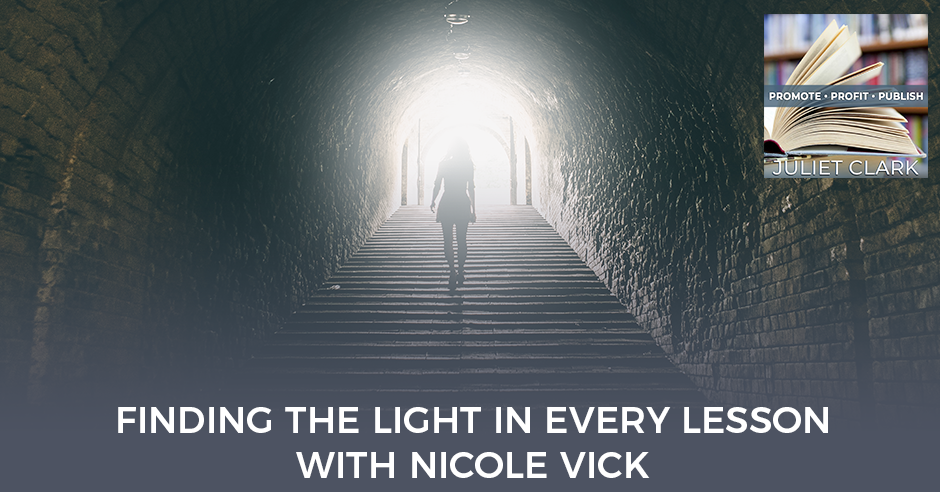
It might be hard for most of us to find the light amidst the tragedies and uncertainties. Especially during the pandemic, many of us find ways to make sense of what’s happening. We do not have to break down. Listen to Nicole Vick as she tells us why we should keep going. Nicole is a seasoned and respected public health professional who has strong relationships with community-based organizations, academia, and stakeholders. She has managed public health programs focused on workforce development, health equity, social determinants of health, and impacts of institutionalized racism and other forms of oppression on health outcomes. In this episode, she joins Juliet Clark to discuss her journey on public health, the twists and turns in her life, and the importance of making a difference in communities. Let’s dive deep into her amazing experience and spark hope in our lives.
—
Watch the episode here
Listen to the podcast here
Finding The Light In Every Lesson With Nicole Vick
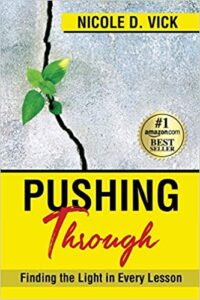
Pushing Through: Finding the Light in Every Lesson
We have another one of our authors as a guest. I’m pretty excited. This is the second book she’s produced with us. Before we get started, don’t forget to take to show quiz. You can find it at PromoteProfitPublishQuiz.com. You wrote the book. Publishing is easy. Promotion is the hardest part. Nicole is with her second book. Find out if you are ready for this. Have you set aside a budget? Do you know what it takes? What is your end game with all of this? The books are not going to be your big moneymaker. It’s what you do with those books and how you present them.
Our guest is Nicole Vick. I’m going to say MPH but I have no idea what that is but she will tell us. I’m sure it has something to do with Public Health Advocates. Nicole is a seasoned and respected public health professional who has strong relationships with community-based organizations, academia and other stakeholders. During her years with the local health department, she has managed public health programs focused on workforce development, health equity, the social determinants of health, and the impacts of institutionalized racism and other forms of oppression on health outcomes.
Nicole also has twelve years of experience as an adjunct professor and she serves on two boards. She was appointed to the Board of Public Health Advocates, an organization that challenges the social, political, and economic systems that perpetuate racial, economic and health disparities. She is also Board Secretary to Esperanza Community Housing, an organization that works to achieve community development in South Los Angeles. Miss Vick earned both her Bachelor of Science in Public Policy and Management and Master of Public Health Degrees from the University of Southern California. She’s in a PhD program at USC as well. Welcome.
I’m so excited to be here. This is exciting.
I’m excited to have you. With your first book, Pushing Through: Finding the Light in Every Lesson, you shared a lot about your background and where you came from. When I read that book before we even published it, I found that it was very inspiring. If I had known you back then, I probably would have said, “She’s done.” You would not be the person that I would have imagined.
Making great relationships with people provides you with wonderful gems of information.
I thought the same thing. It’s so interesting as rich of background and as much support as I had from my family, that one issue or incident could have been a huge derailment of the train. I will share. I was pregnant as a teenager. I had gotten all the way through high school and right before I started college, I’ve got pregnant. That could have caused everything to go in a totally different direction but being who I am, I decided that being pregnant was not an excuse for me.
It wasn’t a deterrent. In some instances, and people don’t like when I say this but I was dumb. I was young and dumb enough not to doubt myself or to count myself out. In that sense, it worked to my benefit. Here I am. We survived with my daughter. She’s here. I’m here. We were pushing through and continuing to do the work.
We all look back and say, “We were young and stupid,” but you didn’t let that stand in your way. I mean that in the best way.
Think about it. With our adult brains, we would have found one million reasons why I can’t do this. Who’s going to take care of the child? Who’s going to pay for this? How am I going to do this? I will have time on the internet. We talk ourselves out of stuff all the time as adults. Being dumb enough to not even think about those nuances and say, “I’m going to do it and keep going,” made the difference.
What’s next? Where did you go next when you finished?
It did feel like a job. I was working, raising her and going to school at the same time. While I was in college at that time, I realized I needed a job. Maybe I didn’t need a job. I was still living at home. My parents were helping me out a lot but I felt like I needed to start going forward on a career path. That’s how I’ve got introduced into public health, this idea of prevention of disease in communities. It was like, “There are people that go out into the community and talk about it.” At the time, I was focused on sexually transmitted diseases, answering hotline calls and mailing condoms to people.
It was like, “This is cool. I want to help.” When I was in college, I thought I wanted to be a doctor or run a health center. I then wanted to be a nurse. I don’t know what I’m doing but I know I want to help people. Please don’t ever as a society, get rid of student jobs because it exposes people to careers that they may not be familiar with. It helped me see public health as a viable career option.
I have been here for working in this field, have been so fulfilled and proud of the work that we are doing. That’s the short version of what happened next. There were many twists and turns, relationship issues, self-esteem issues, weight issues, all kinds of things. All along, those things helped to shape my perception of what public health means in communities.
It helps to inform everything that I do. Even in my Doctoral program, I’m like, “If this is what a Doctorate degree is like,” besides writing a dissertation, “This is great because I get to talk about the connection between my work experience, my lived experience, and what I have learned in my other schooling.” It has been an amazing experience and journey. I’m talking in bits and pieces but I’m hoping it’s making some sense about using what your lived experience is as a tool and leverage for your career.
I have to go back because I always tell people, “If you had told me 30 years ago that I would own a publishing company, I would have gone, ‘What?’” I walk my way through. I worked in publishing, in advertising, and then I was a real estate broker. When I started this company, it all brought it together. I have sales experience. I know how to run a business. I know sales and marketing. I know a publishing company. Was it like that for you? Did you know where you wanted to go or was it like, “I’m here. I’m passionate about it. I don’t know where it’s going?” How was it for you?
That student professional work experience in that STD clinic started me there. Another important aspect of it was the people that were working near and the relationships that I have fostered. The people that gave me these wonderful gems of information along the way made a big difference. I’m at this STD clinic answering the hotline and mailing out condoms but there’s a woman in there that says to me, “Go back to school. Get your Master’s degree. Your salary will double.” I still know this woman years later who I spoke to again. “I’m going to get my Doctorate.” “Go back, get your Doctorate. Don’t give anyone a reason to count you out. Don’t let it be because of that.” These women specifically saw something in me, pulled me to the side, and gave me these little jewels of information.
The good thing about me is I listen. I pay attention. I’m like, “When somebody like that says something to me, I’m paying attention to that.” Those also were important and propelling me forward. I had no idea what public health was at the time. I only knew I wanted to help people. Once I’ve got in and understood, I’m like, “This is where I want to be and this is how I want to help my people, my community and everybody.” Public health is for everyone.
You released your first book in 2020. Your next book, which is more of a journal, a reflection, is coming out. Why this? What was the impetus for taking this from the book? Was that your story helping people into, “I want to do something more substantial with it?”
Don’t give anyone a reason to count you out.
When COVID hit especially in the work that I do in public health, we are frontline folks like firefighters. We are not running away from it. We are running towards it. Like, “How do we fix this? How do we solve this?” I’m running towards it because that’s what we are supposed to do. I’m also a human so I’m also like, “What the heck is going on?” All the other stuff that has started to happen that summer with the political unrest in regards to some of the killings that were happening had an impact on me.
As much as I love to journal, I had put it away because I was busy. When all that started to happen, I’m like, “How do I make sense of this? How do I deal with and cope with the reality of what I have to do professionally?” Experiencing it as a human being like, “What is COVID? Am I going to die? What’s going on?” Also, seeing communities break down, I was like, “I want to sit here and envision a world that would be best for everyone.” The writing was that way of trying to re-imagine that and deal with all of that emotion. I decided, “If writing was helpful to me, perhaps if I take some of the quotes that I find most inspirational, put them in a book, and create a section where people can write, other people could also benefit.”
The other part of it is that during this time, I’m working from home. I was doing these weekly messages every Wednesday. I would come and do Wisdom Wednesday. I would pick a quote that I loved. I would sometimes go live and do it or record it however I felt that week. I was like, “Why don’t I start with those quotes that stuck to my heart and use those as the basis for the book?” It was an easy thought for me like, “Why not share?” It’s in line with how I am. If I know something that you need to know, I’m not going to be like, “If you give me $30, I will tell you.” I’m going to share. It’s my responsibility to share whatever tidbits of knowledge or information that would be beneficial and helpful. We are going to sell this book so it’s not going to be free.
One of the things that impressed me the most about you when you first came to me was, we have so many entrepreneurs that come to us that have struggling businesses, don’t have a job and a vision. You were willing to say, “I have this day job. I know where I want to go. I know when I want to retire. This is the direction I’m going in. I’m willing to take it slow and be realistic about it.” Can you talk a little bit about that progression and where you see all this going when you are finally, hopefully, no one of your employers is reading, ready to retire?
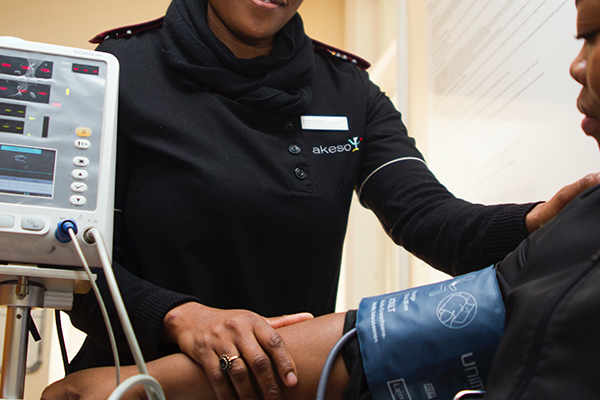
Finding The Light: Don’t ever get rid of student jobs because it exposes people to careers that they may not be familiar with. It helps people see different industries such as public health as a viable career option.
They already know. They will hope and plan on 43. I said, “Let me see if I can get it ten more years.” I don’t know financially if that’s going to make sense but strange things have happened so I’m not going to doubt that out. I would love to retire at 53. Fifty-five would be great. I don’t want to work until 65. The next generation, let them come in and do the work with their new creative ideas. Let me go sit down somewhere. I can’t move fast because of the way my brain moves anyway, I have so many things going on.
I understand that I have to take this slowly and I am thinking bigger picture. The good thing is for me, I have so many interests. Most of them are professional. I want this Doctorate degree so that I can promote as much as I can in my day job but also if I want to retire and continue to teach full-time, I can still do that. I also am interested in doing things like workforce development for community-based organizations. I have done that on a small scale already. Like, “I’ve got this insight about some of the things that you were working on. Let me help you out.”
The book and the journal work together to work with businesses on developing their staff that may be working in the community and are not sure how to best address or approach different cultures. It’s a wonderful opportunity to use it as a tool like, “Here you go. I have something to offer you. Here are my services and area of expertise.” It’s not an overnight success. I’m going to wake up tomorrow and be able to quit. I’m going to move slowly more. Be deliberate.
I understand that also in this moving slowly and deliberately, I am paying my dues. It can be hard because you see people like, “They are doing all this, sending all these books and making all this money. They are on TV. Why not me? I’m cute and bubbly,” That’s okay because I have my lane and I’m going to work that lane until the lane doesn’t work no more and then we are going to switch. I’m excited. There are other books in my head so I’m letting you know that.
If we want to know more about what you are doing, what you are up to, where can we find you?
You can find me on my website, NicoleDVick.com. You can find me on social media. I’m big on Instagram. I’m there quite often. My Instagram is @NicoleDVick. I’m also good on LinkedIn. Someone reached out to me randomly and said, “I was looking for a speaker.” He said he typed in women’s empowerment, “Your stuff popped up.” I was like, “What?” LinkedIn is a good place to find me as well. I’m not active but I have a lot of stuff there.
Don’t forget the importance of self-care. Take time and the opportunity to give to yourself.
I do have an author page on Facebook if you are interested as well. I do Facebook Lives once a month. I do a weekly show with my daughter every Sunday if you want to see a mom and her adult daughter having a great time. She did a facial on me because she’s an aesthetician. She called me mature and I must have looked at her like, “Excuse me?” If you want to see that interaction because we are great together, check us out on Instagram on that as well. I have fun with her and fun sharing what I know. I forgot to mention the whole nail care and self-care thing that I have. I have so much stuff in my head.
Tell us about it. We have time. What’s nail care, self-care?
It also goes along with the journal. The whole idea of writing is self-care and trying to process. For me, because my brain is running a million miles an hour, every Sunday is my opportunity to be still. The best way to be still is to paint your nails because you can’t move if your nails are wet. Over the years, I have gotten good at nail art and nail design.
This is another skill of mine. I was able to convince a friend of mine that owns a nonprofit organization focused on parenting. I said, “Can we do a nail care self-care class? She was like, “Sure.” I’ve got sponsors to pay for the entire event. Invited women in and we painted nails. We talked about affirmations and all things. It was exciting. That’s something else I have been doing. Not all the time but something I want to incorporate as well. I’ve got a lot of stuff going on.
Nicole, it has been great. Thank you so much for sharing everything that’s going on in your life.
Thank you for having me.
Important Links
- PromoteProfitPublishQuiz.com
- Public Health Advocates
- Esperanza Community Housing
- Pushing Through: Finding the Light in Every Lesson
- NicoleDVick.com
- @NicoleDVick – Instagram
- LinkedIn – Nicole D Vick
- Facebook – Nicole D Vick
About Nicole Vick
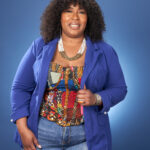 Nicole is a seasoned and respected public health professional who has strong relationships with community-based organizations, academia, and other stakeholders. During her 15 years with the local health department, she has managed public health programs focused on workforce development, health equity, the social determinants of health, and the impacts of institutionalized racism and other forms of oppression on health outcomes.
Nicole is a seasoned and respected public health professional who has strong relationships with community-based organizations, academia, and other stakeholders. During her 15 years with the local health department, she has managed public health programs focused on workforce development, health equity, the social determinants of health, and the impacts of institutionalized racism and other forms of oppression on health outcomes.
Nicole also has 12 years of experience as an adjunct professor, and she serves on two boards. She was most recently appointed to the board of Public Health Advocates, an organization that challenges the social, political, and economic systems that perpetuate racial, economic, and health disparities.
She is also Board Secretary at Esperanza Community Housing, an organization that works to achieve community development in South Los Angeles. Ms. Vick earned both her B.S. in Public Policy and Management and Master of Public Health degrees from the University of Southern California.
Love the show? Subscribe, rate, review, and share!

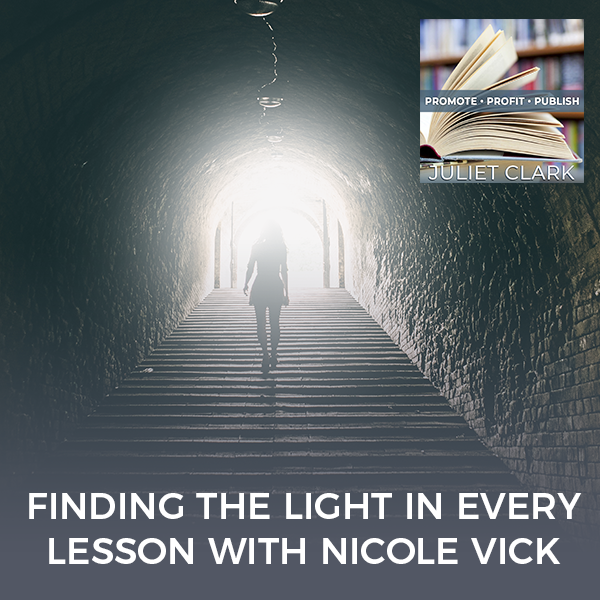







Leave A Comment